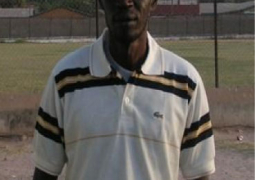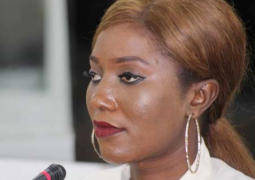“Go placidly amid the noise and haste, and remember what peace there may be in silence. As far as possible, without surrender, be on good terms with all persons.
“Speak your truth quietly and clearly; and listen to others, even the dull and ignorant; they too have their story. Avoid loud and aggressive persons - they are vexations to the spirit.
“If you compare yourself with others, you may become vain and bitter; for always there will be greater and lesser persons than you… “
It is well-known that even religious scriptures recommend that it is better we always take a softly-softly approach in handling all human relations.
Thus it was that at Wednesday’s opening of the 4th Africa-EU Summit in Brussels, Belgium, mindful of this ancient wisdom, the chairperson of the African Union Commission did put Africa’s case to the world in words delivered clearly but softly, and without sounding controversial.
Indeed, the AU chairperson spoke diplomatically, which is what is required in today’s inter-dependent world. This was what she told her audience:
“The Africa-EU partnership has come a long way, since the first Africa-EU Summit in Cairo in 2000...Africa was regarded as the 21st century development challenge and a moral scar on the conscience of humanity.
“Fourteen years later, Africa is the second fasting growing region in the world, public and private investment in infrastructure is on the increase and there is tangible progress on a number of social indicators, many of them due to our joint efforts.
“We witnessed changes to the political landscape of the continent, with democratic elections becoming the norm, demonstrating our collective commitment to promote a political culture based on legitimacy, inclusion and accountability.
“Although stubborn pockets of conflicts remain, causing immense suffering and devastation especially for women and children; progress is being made through the African Peace and Security and Governance Architectures.
“We acknowledge the continual generosity of Europe’s contribution towards peace in Africa”.
She went on to talk of “challenges” still faced, and that the AU focuses on a set of pan African priorities.
The African people “are our most valued resource,” she went on, adding that “the health, education, nutrition and general well-being of our populations, therefore, remain critical development priorities, now and into the future.
“With a growing and young population, Africa needs a skills revolution and to scale up investments in science, research, technology and innovation. Investing in people also requires the empowerment of women and young people.
“For our partnership, this means working together on training and skills development. Given the different demographic trajectories of our two continents (one young and the other ageing), we may have to in the near future share this human resource with you. It is in both our interest that it is a skilled human resource.
“The common African agricultural programme, African mining vision, African industrial development plan and other frameworks are positioning Africa to harness and benefit from its vast natural resources, including land, water and forests; minerals and energy and its rich biodiversity and oceanic resources. Europe has great experience on all of these areas, and if we work smartly, coupled with African indigenous knowledge, we can all benefit from this.
“Africa must, therefore, be given the policy space for its farmers and industries to compete fairly. We must address the contradiction that we are being asked to eliminate tariffs in 80% of trade, making African farmers even more vulnerable in the face of so called ‘non-trade distorting’ domestic support to farmers.
“This will not only impact on agriculture, but also on our nascent industries in all sectors, and put a halt to African industrialisation and diversification.
“Africa needs the policy space to determine for itself what needs to be done with its natural and mineral resources, so that the continent can at last break out of the mould of exporter of raw materials, whilst jobs are being created elsewhere.
“Our Pan African priorities furthermore include speeding up infrastructure development, the integration of the continent (including the creation of the Continental Free Trade Area) and improving intra-Africa trade and trade with the world.
“Our trade agreements must reinforce, rather than undermine the possibility of this African Free Trade Area and the growth of intra-African trade.
“There are a number of further sectors cooperation such as infrastructure investment through the African Development Bank’s Africa 50 private equity fund.
“We want European companies to form partnerships with local African businesses and entrepreneurs, to invest in agri-businesses, food-processing, green and blue economies, textile, ICT, manufacturing and other growing areas.
“We also need to work together to stop the illicit flows of capital from the continent.
“We must take forward cooperation in the preservation of African biodiversity and forests, the protection of animal and fauna species, its fishing resources and in addressing the impact of climate change on the continent, in a manner that strengthen African capacities and institutions.
“This is necessary for humanity, not only for Africans and we must therefore increase capacities to protect our fauna and flora.
“None of the above can materialise and progress without silencing the guns. We must, therefore, redouble efforts to bring peace in South Sudan, CAR, Mali, Darfur, Somalia and the DRC, and consolidate peace in countries emerging from conflicts.
“Africa leaders committed to silence the guns by 2020, by addressing root causes of conflicts, such as trade and dumping of small arms, de-stabilisation so as to plunder our natural resources, and transnational crime and terrorism.
“Africa has a duty to build societies that are inclusive, democratic, accountable and tolerant; that respect human rights and manage diversity and ensure that no one is marginalised or excluded.“As we therefore survey the vistas that surround us, we must ensure frank engagements, and strengthen our partnership, based on mutual understanding of each other’s challenges, opportunities and aspirations. I thank you”. Well spoken! Bravo!
“Diplomacy: the art of restraining power”.
Henry A. Kissinger



